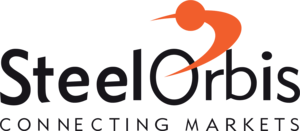
EUROMETAL at Wire & Tube 2024 in Düsseldorf
This week took place the Wire & Tube 2024 Düsseldorf fair. Considered the world’s most important trade fair for the tube, wire & cable industry and the central hub for international business, the 2024 edition brought together around 2.700 exhibitors from 60 countries and thousands of visitors from 135 countries in Düsseldorf.
The desire for personal exchange in these – economically and geopolitically – difficult times was clearly noticeable in the industry. “The world seems to turn faster and we turn with it. Every two years our industries get together here in Düsseldorf – the community stands by its location on the Rhine. We are very grateful for this and are working consistently to ensure that wire and Tube will also remain their industries’ No. 1 trade fairs in future,” delights Daniel Ryfisch, Director wire, Tube & Flow Technologies.
EUROMETAL’s presence at the fair made it possible to meet colleagues, members and and introduce our federation to dozens of contacts.
In 2026 wire and Tube will again fly their flags in Düsseldorf, from 13 to 17 April 2026.
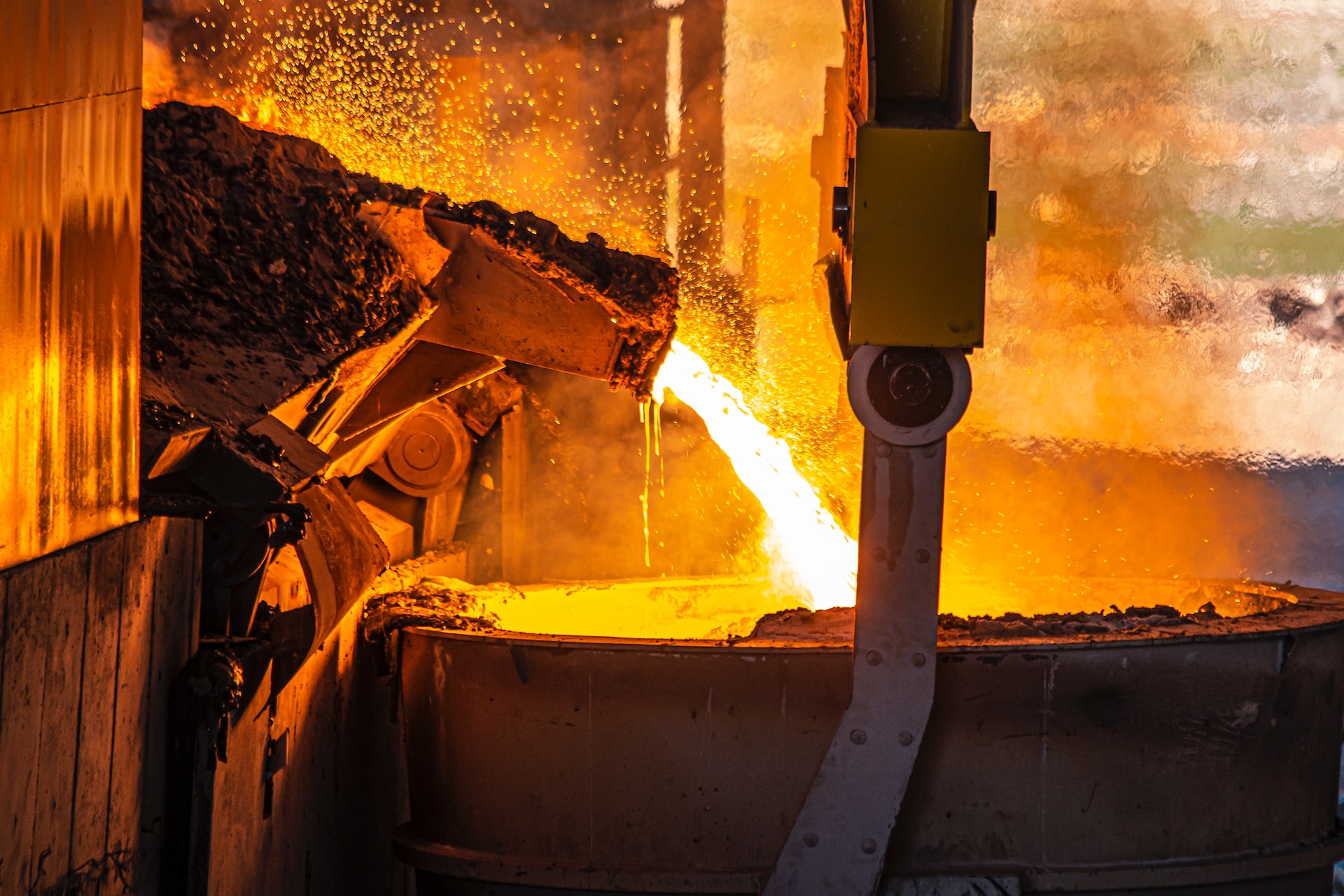
EU’s CBAM to spur other countries to introduce carbon border levies
The EU’s introduction of a Carbon Border Adjustment Mechanism is prompting some countries to introduce their own carbon border levies while others are considering retaliatory measures, the International Emissions Trading Association said April 18.
IETA, in a report, gave an overview of country-level responses to CBAM, finding that some — including Australia, Turkey and the UK — were developing their own carbon border levies in response.
“CBAM is making waves around the world, although it is still a decade before the system will be fully in place” IETA EU Policy Director Julia Michalak said in a statement. “It has triggered varying reactions ranging from threats of WTO challenges to commitments to establishing domestic carbon markets.”
Japan, Singapore and South Korea were the most likely supporters of CBAM, IETA said.
Canada may enter into bilateral agreements with the EU, while South Korea was considering changes to its own emissions trading system, the association said.
However, more hostile responses have come from petrostates and other countries exposed to exports to the EU.
“South Africa calls it discriminatory, India is considering retaliatory measures and China has raised concerns within WTO,” IETA said.
Phasing in from 2026, CBAM will levy a carbon tax on imports of selected energy intensive materials and products into the EU, removing the gap between the EU’s ETS carbon price and the export country of origin’s carbon price.
Analysis by S&P Global Commodity Insights found Brazil, Canada, South Africa and Turkey will be most exposed to the mechanism, with iron and steel by far the biggest sector targeted.
Platts, part of S&P Global Commodity Insights, assessed nearest December EU ETS allowances at Eur69.98/mt CO2 ($75/mt CO2) on April 17.
UK Emissions Trading System allowances settled at GBP35.62/mtCO2 ($44/mt) on April 17, while South Korea allowances were assessed at just Won 8,800/mt ($6.4/mt).
The new EU carbon border tax entered into application in a transitional phase Oct. 1, 2023, with the first reporting period for importers originally set to end Jan. 31, 2024. That was later extended by 30 days.
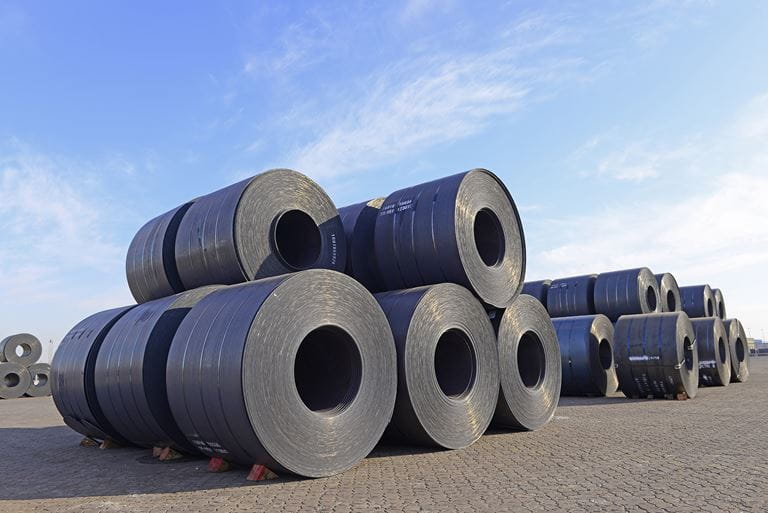
European HRC prices approaching bottom, supported by uncompetitive import
Domestic hot-rolled coil prices almost reached bottom on April 18 and such sentiment has been supported by rising import offers.
The rise of import offers was mainly driven by euro to the US dollar exchange rate.
Demand remained muted with no end-user consumption rise expected and distributors holding back from big bookings. Spot buyers have been avoiding to build stocks and preferred to buy smaller lots more frequently to cover the immediate needs and to avoid risks related with possible price decrease in the future.
Majority of sources believe that prices would stabilize around the current levels as costs would not allow a drop and support from some restocking and less competitive import would not be enough to push prices up, unless domestic capacities are cut.
Some market participants, however, believe that prices might drop below Eur600/mt ex-works Europe if the exchange rate changes.
Platts assessed domestic hot-rolled coil prices in Northwest Europe down Eur5/mt on the day at Eur625/mt ex-works Ruhr on April 18.
Tradable values were reported at Eur620-630/mt ex-works Ruhr.
A deal was heard at Eur625/mt ex-works Ruhr.
A German mill has been offering the material at Eur630/mt ex-works Ruhr.
Platts assessed prices for imported material in Northwest Europe up Eur5/mt on the day to Eur595/mt CIF Antwerp.
Offers were reported at Eur600-610/mt CIF Antwerp for the material from Asia.
Platts assessed domestic prices for hot-rolled coil in South Europe unchanged on the day at Eur620/mt ex-works Italy April 18.
Tradable values were reported at Eur620/mt ex-works Italy and a deal for a bigger lot with a pipemaker was heard at Eur615/mt ex-works Italy, but the price was not available for the wider market.

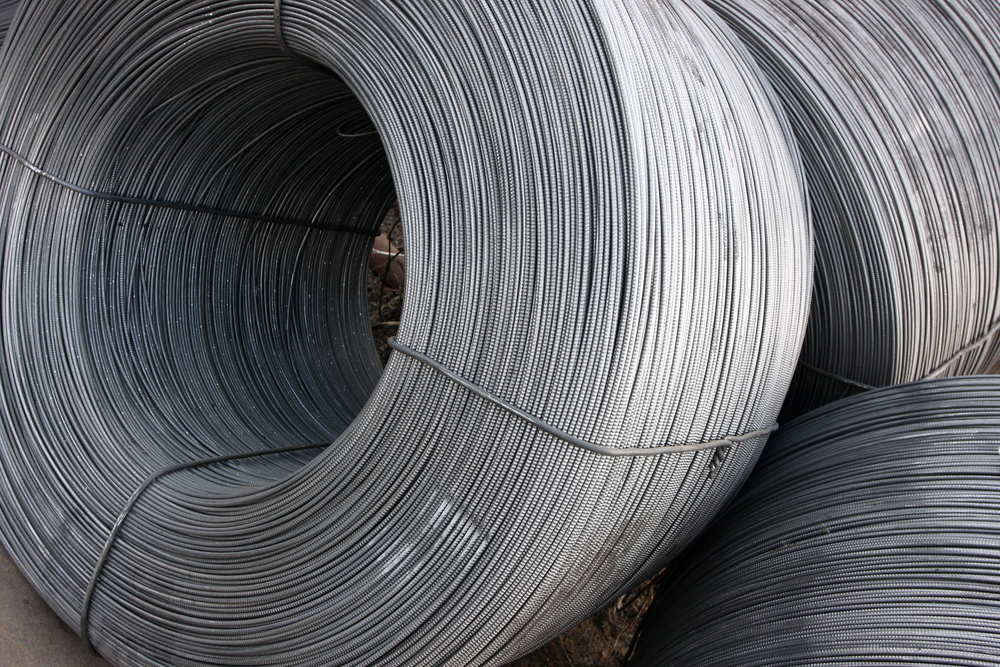
Ovako and FNsteel partner to boost low carbon wire rod production in Europe
Sweden-based steelmaker Ovako has announced that it has signed a partnership deal with the Netherlands-based premium wire rod manufacturer FNsteel to boost low carbon production of high value-added wire rod in Europe.
The deal will last for a minimum of two years, commencing in 2025.
The partnership will see Ovako’s Smedjebacken mill managing the production flow of the low carbon-footprint steel raw material used by FNsteel to manufacture premium wire rod. The low carbon and high value-added wire rod to be produced will be supplied to the automotive, construction and engineering sectors in Europe.
Ovako emerged as the ideal partner for this partnership as the steel it produces has an 80 percent lower carbon footprint compared to the global average.

France’s GravitHy secures electricity supply for its DRI plant to be built in Fos-sur-Mer
France-based sustainable iron company GravitHy has announced that it has signed an agreement with UK-based energy company EDF to guarantee a stable supply of electricity for its low-carbon direct reduced iron and hot briquetted iron production plant to be built in Fos-sur-Mer in southern France.
This partnership will enable GravitHy to benefit from low-carbon electricity at a price that is competitive over the long term.
The plant, which is expected to have an annual production capacity of two million mt, is scheduled to begin production in 2027. The plant will be France’s first low-carbon direct reduced iron and hot briquetted iron production plant.
“Our mission to decarbonize the steel industry depends essentially on a supply of green, low-carbon electricity, in sufficient quantities and at a competitive price,” José Noldin, CEO of GravitHy, said.

SSAB supplies fossil-free steel to Manitou, John Deere
SSAB has signed a letter of intent for deliveries of fossil-free steel to Manitou Group, a France-based major maker of industrial equipment for construction, agriculture, earth-moving and other fields.
Deliveries are set to start in 2026 and ramp up as SSAB’s fossil-free steel production capacity increases, Kallanish hears from the Swedish steelmaker. It already delivers specialised and high-strength steels to Manitou, and future deliveries will include SSAB Fossil-free and SSAB Zero in the mix
According SSAB, the fossil-free steel will allow Manitou to bring to market a new generation of sustainable products, including telehandlers, aerial work platforms or forklift ranges. Manitou aims to reduce its direct and indirect carbon emissions (scope 1 and 2) by 46.3% and its CO2 emissions for every hour of use of the machines by 33.7% (scope 3) by 2030.
In an agreement with another maker of heavy equipment, SSAB this month has signed up with John Deere Forestry Oy. The maker of forest machinery will replace some of the steel it uses with sustainably made steel from 2026 onwards. John Deere Forestry’s sustainability target for sustainably manufactured products is 65% by 2030.
Christian Koehl Germany


Italy to discuss CBAM changes with Brussels
The Italian parliament has approved a motion that will force the government to work with the European Commission (EC) to review certain elements of the Carbon Border Agreement Mechanism (CBAM), Kallanish notes.
“We hope that the Italian government will propose the necessary legislative changes,” the local steel trade association Assofermet says in a document.
Among the various concerns discussed in the Italian chamber of deputies, one of the crucial points is the difficulty in gathering the data to be provided to the EC.
“The first deadline of the end of January 2024, to communicate data relating to imports for the fourth quarter of 2023, has unfortunately confirmed all our predictions,” says Assofermet’s steel division director Paolo Sangoi. “It is extremely difficult to find the required information from suppliers and major complications occurred when entering the data into the system. There are many (third countries’) producers who declare themselves unavailable to provide certain data considered extremely confidential.”
Another point of concern is the inclusion of raw materials such as pig iron and semi-finished products within the CBAM mechanism. Finished products produced outside the EU using the same raw materials can be freely imported. This will result in a higher cost of raw materials for EU producers, unlike their foreign competitors who will be able to count on cheaper raw materials.
“This is a series of glaring regulatory mistakes: The consequences on the competitiveness of the local manufacturing sector were evidently not taken into account during the (CBAM) study phase,” Sangoi concludes.
Assofermet warns of a serious risk of delocalisation of the manufacturing sector as several producers will move their production sites to areas with less restrictive geographic areas.
Earlier this year, Assofermet said the normative framework of the mechanism and safeguards on steel imports is hindering the daily activity of Italian and European steel companies. The challenges in filling CBAM reports, the economic repercussions expected from the mechanism starting in 2026, as well the safeguard measures in force from 2018, are a deep concern for Assofermet’s members.
In August, the EC published the details to be considered in the implementation of CBAM regulation in practice. The document of 102 pages “was full with legal and technical terms which most companies will have never heard of,” writes Andreas Schneider of Stahlmarkt Consult. In his latest blog titled “The Introduction of CBAM: A Disastrous Start,” Schneider points out that the new duties are a burden especially for smaller enterprises with limited staff for legal matters.
According to Wood Mackenzie, the mechanism could add $275/tonne of cost for some key finished steel exporters to the EU, while the increased domestic production costs could lead to a political backlash. The CBAM fees could increase the cost of delivered steel to the EU by about 56% for India and about 49% for China in 2034, the consultancy notes. One initial response for exporters to the EU is likely to be a reorganisation of sales to direct lower-emissions steel to the European market, while higher-emissions production is diverted to markets without carbon fees. The EU plans to monitor and address these strategies, but it does not have a concrete action plan to prevent them, Wood Mackenzie says (see Kallanish passim).
Natalia Capra France

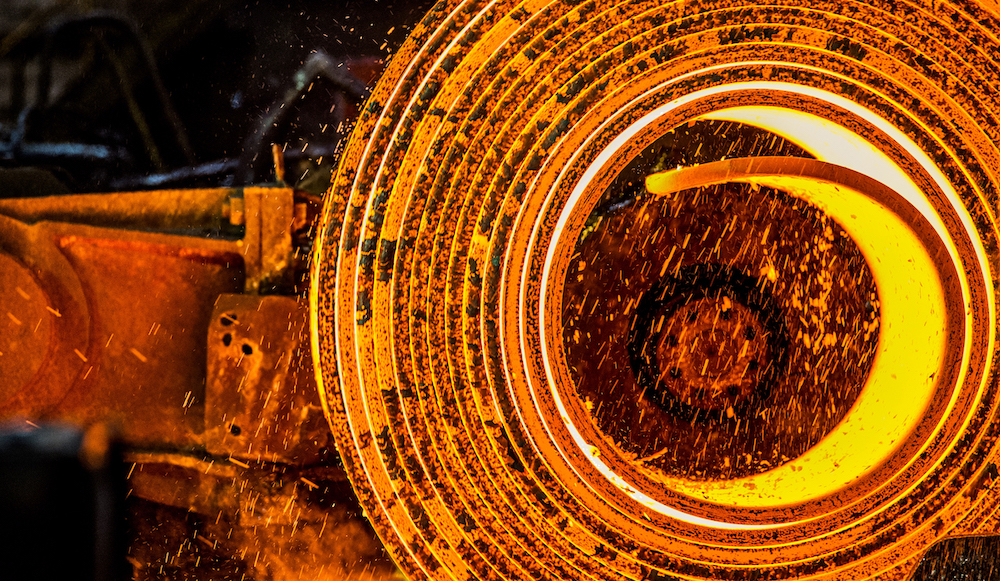
Belgium’s NLMK La Louviere restarts production after 10-day halt
Belgian flat rolled steel producer NLMK La Louviere has fully restarted production after having had to halt operations following an accident 10 days ago, a company spokesperson told S&P Global Commodity Insights on April 17.
NLMK began restarting the plant on April 15, with production returning fully to normal on April 16.
The halt followed the detection of smoke in an electrical substation on April 5, which led to a black out and is still under investigation.
Located in Belgium, NLMK La Louviere focuses on the production of hot- and cold-rolled coil for automotive industry, general construction, and pressure vessels manufacturers.
The company has a production capacity of 1.7 million mt/year of hot-rolled steel and 1.3 million mt/year of pickled steel.
The Belgium mill, is part of NLMK Belgium Holdings, a joint venture between Belgian investment fund SOGEPA and Russian mining and steel company NLMK.
Apart from La Louviere, NBH owns strip mill NLMK Strasbourg (France), NLMK Manage Steel Center (Belgium), and plate producers NLMK Clabecq (Belgium), NLMK DanSteel (Denmark) and NLMK Verona (Italy).
NLMK La Louviere last year also underwent a halt in its hot strip mill for few months following an accident.
Overall, the European flat steel market has been weak recently, with some sources predicting that this will lead to production cuts.
Platts, part of S&P Global Commodity Insights, assessed HRC in northern Europe down Eur5/mt on the day at Eur630/mt ($669.564/mt) ex-works Ruhr April 16, marking a decline of 8.7% since the start of 2024.
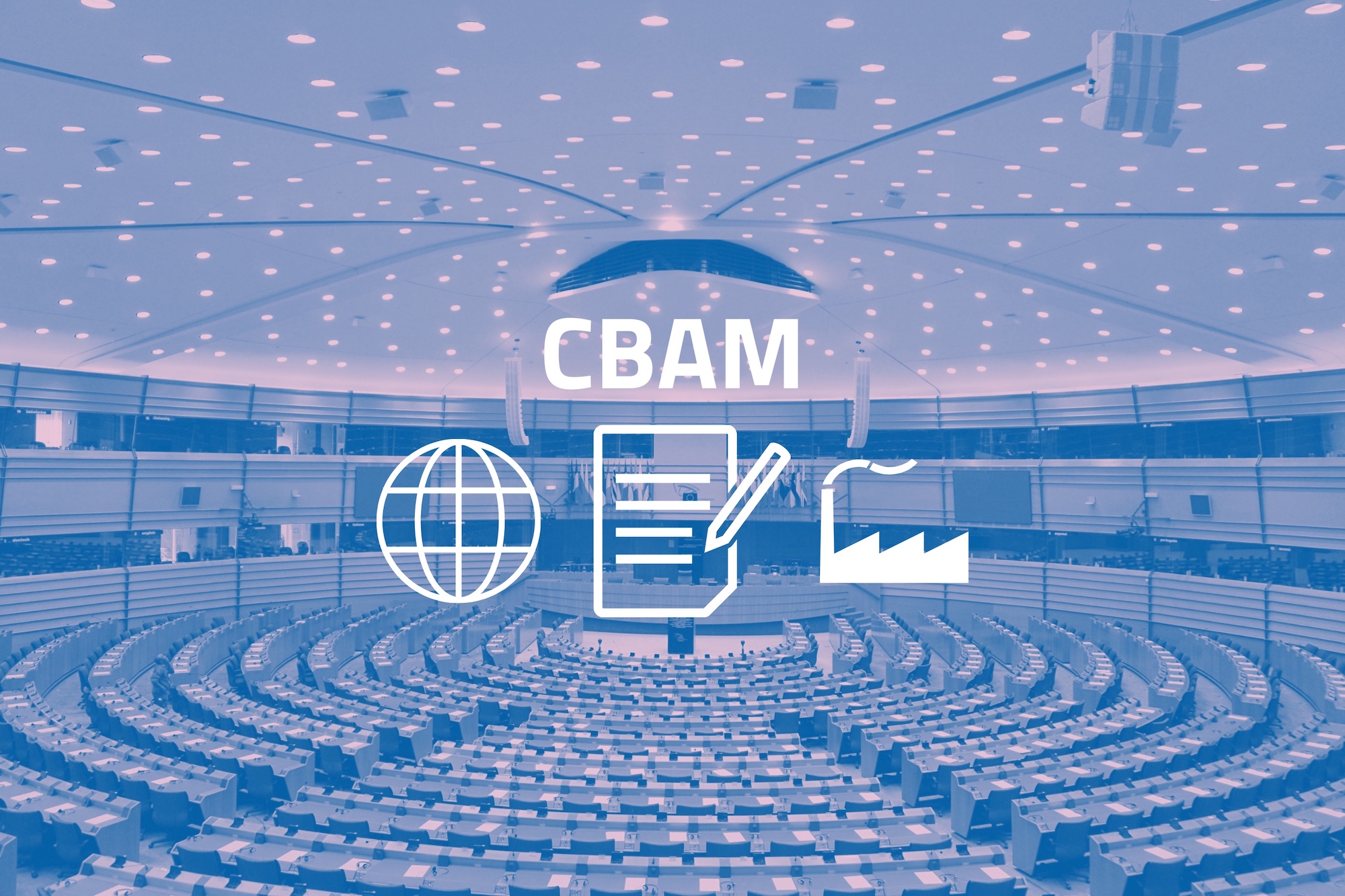
Assofermet: piena condivisione della mozione CBAM approvata alla Camera
È stata approvata lo scorso 10 aprile una mozione parlamentare della Camera dei Deputati che impegna il Governo a confrontarsi con le istituzioni europee per rivedere alcuni aspetti del CBAM. Assofermet esprime piena soddisfazione in merito alla mozione e ne sottolinea l’importanza strategica per il futuro del Meccanismo. Da un lato, gli interventi dei Deputati in Aula e il testo finale della mozione sottolineano le stesse perplessità che la nostra associazione evidenzia da tempo: l’applicazione esclusiva del CBAM alle materie prime (come la ghisa) e ai semiprodotti e semilavorati di acciaio e alluminio, le difficoltà a reperire informazioni dai fornitori extra UE e molto altro. Dall’altro lato, i dubbi più evidenti sono stati sottolineati trasversalmente da gruppi parlamentari molto diversi fra loro, sia di maggioranza sia di opposizione. È un passaggio decisivo che evidenzia che le preoccupazioni sul futuro dell’economia e dell’industria europee non hanno colore politico.
“Visto il successo della mozione, ci auguriamo che proprio il Governo italiano proponga per primo le modifiche legislative necessarie”, ha dichiarato Luca Carbonoli, Direttore di Assofermet. “Assofermet è a completa disposizione per dialogare con le istituzioni governative in merito a quello che riteniamo fondamentale cambiare“.
Assofermet si è sempre schierata a favore della transizione ecologica, purché venga salvaguardato e non penalizzato il sistema economico del nostro territorio. Fra le varie preoccupazioni discusse alla Camera dei Deputati, uno dei punti cruciali è la difficoltà di reperimento dei dati da comunicare alla Commissione UE. Il Presidente di Assofermet Acciai, Paolo Sangoi, rivela che “la prima scadenza di fine di gennaio 2024, data entro la quale sono stati comunicati i dati relativi alle importazioni del quarto trimestre 2023, ha purtroppo confermato tutte le nostre previsioni. È estremamente complicato reperire le informazioni dai fornitori e si sono verificate importanti complicazioni nell’inserire i dati nel sistema. Ancora oggi sono molti i produttori che si dichiarano non disponibili a fornire una certa parte di dati in quanto ritenuti estremamente riservati”. Un altro tema centrale è l’applicazione esclusiva del CBAM alle materie prime e ai semiprodotti. Questo, continua Sangoi, lascia “piena libertà di import dei beni e componenti realizzati fuori dalla UE con la stessa materia prima che, se importata senza ulteriori lavorazioni o trasformazioni, è soggetta alla normativa. Si tratta di una serie di clamorosi errori normativi: nella fase di studio non si è evidentemente tenuto conto delle conseguenze sul sistema manifatturiero e sulla sua competitività”. Questo si tradurrà in un maggior costo delle materie prime che la manifattura UE sarà costretta a subire, a differenza dei suoi competitor stranieri che potranno contare su materie prime a prezzi più vantaggiosi. Un’altra conseguenza è rappresentata dal rischio concreto di esodo di aziende manifatturiere. È prevedibile che molte imprese trasferiranno i propri siti produttivi nei Paesi che permetteranno di operare nel rispetto dell’ambiente ma con minori restrizioni rispetto alla UE, evitando la tassa all’import in partenza a gennaio 2026.
La mozione approvata alla Camera dei Deputati lo scorso 10 aprile è il primo passo per poter affrontare questi temi in sede legislativa a livello UE. La speranza per il futuro della competitività europea è che si continui a perseguire la transizione ecologica senza però penalizzare il sistema economico nel suo complesso.


ArcelorMittal increases prices for long steel products across Europe
And wire rod was heard offered at 3,000 Polish zloty per tonne CPT.
Buyer sources told Fastmarkets that demand for long steel products remained slow and expressed skepticism that the new prices would be accepted in deals, citing that the construction sector — the main consumer of long steel products — was still not performing well.
“The new prices have not been sealed in deals yet — buyers are resisting,” a trading source told Fastmarkets.
Prices for long steel products in Europe have been declining recently, mainly due to slow demand from construction, the key end-user sector.
Fastmarkets’ weekly price assessment for steel reinforcing bar (rebar), domestic, exw Poland was 2,650-2,670 zloty per tonne on April 12, down by 5.96% from 2,787-2,870 zloty per tonne on February 23.
And Fastmarkets’ weekly assessment for steel reinforcing bar (rebar) domestic, delivered Northern Europe was €630-655 ($670-697) per tonne on April 10, compared with €655-665 per tonne on February 21.
Despite depressed buyer sentiment, one seller source said that the price for long steel products in Europe would not decrease further because of high production costs.
Besides, imports have become less attractive, with some suppliers having already depleted their second-quarter allocation for some products, the seller source added.
Notably, Turkey’s wire rod import allowance of 116,233 tonnes for April-June had already been fully utilized on Monday April 15, European Commission’s customs data showed.
As for the “other countries” quota for April-June, only slightly over 11,000 tonnes out of the 119,890-tonne allocation were available on Monday.












